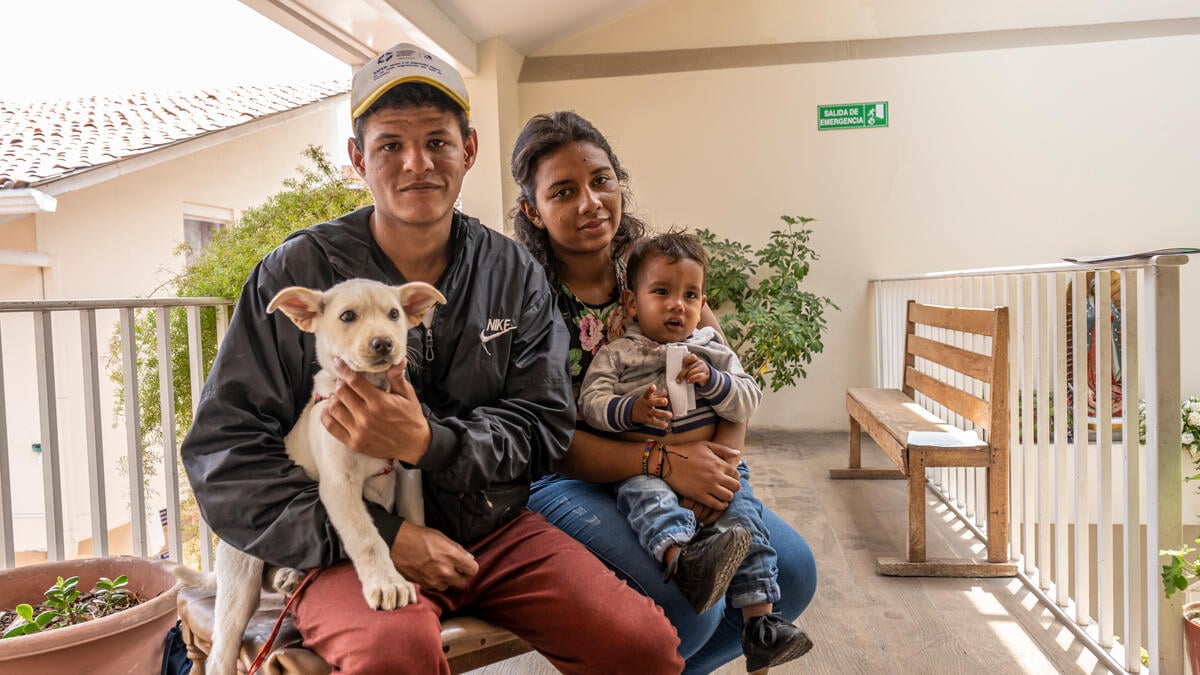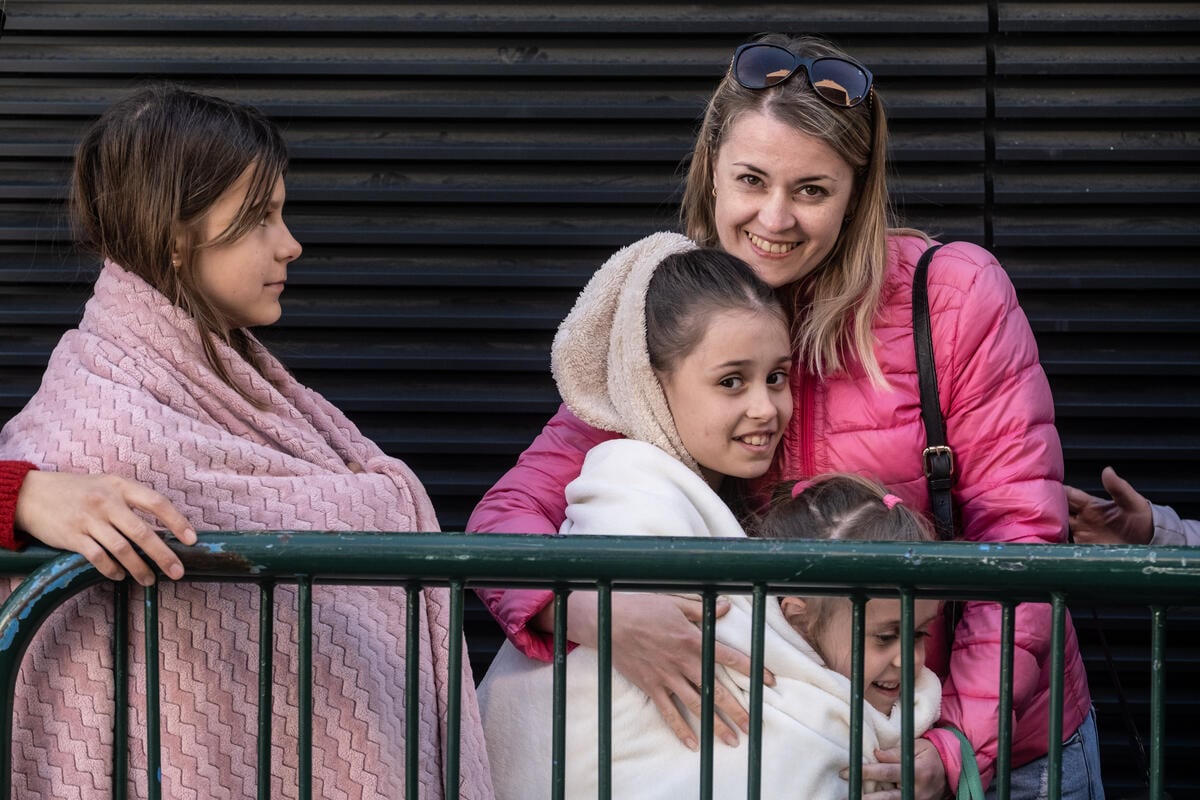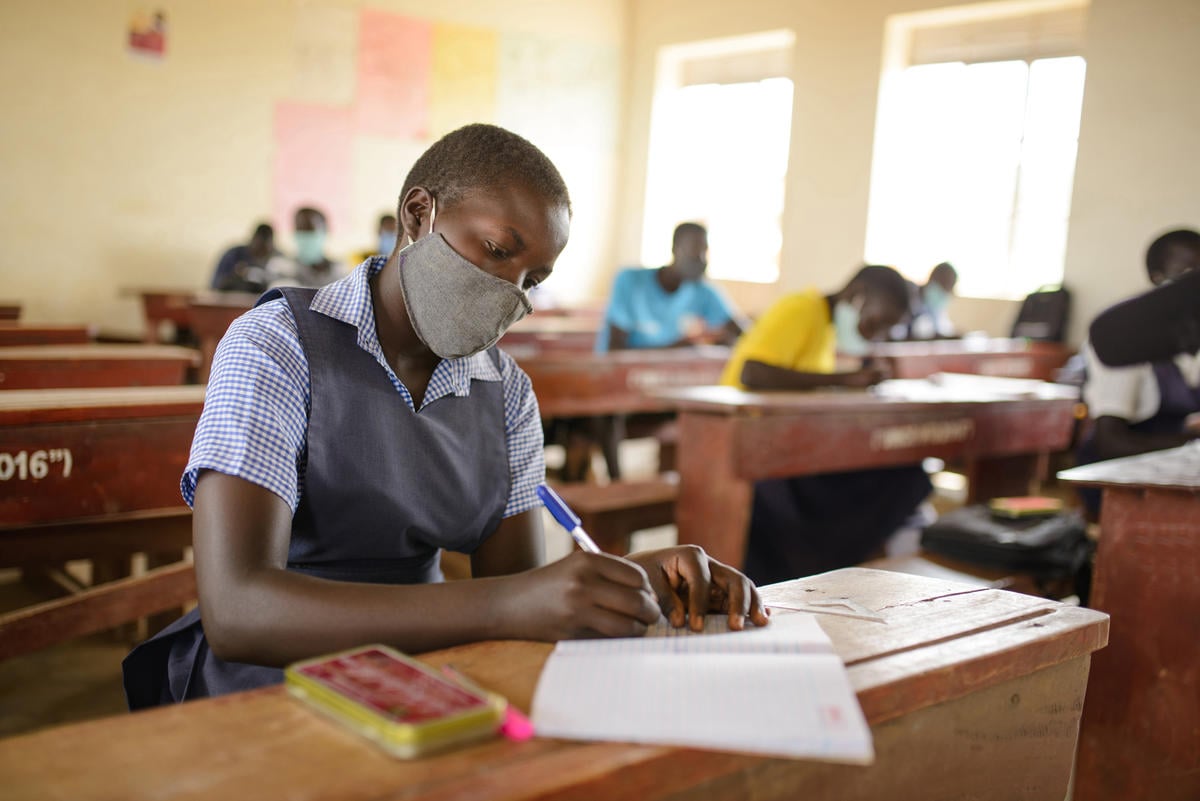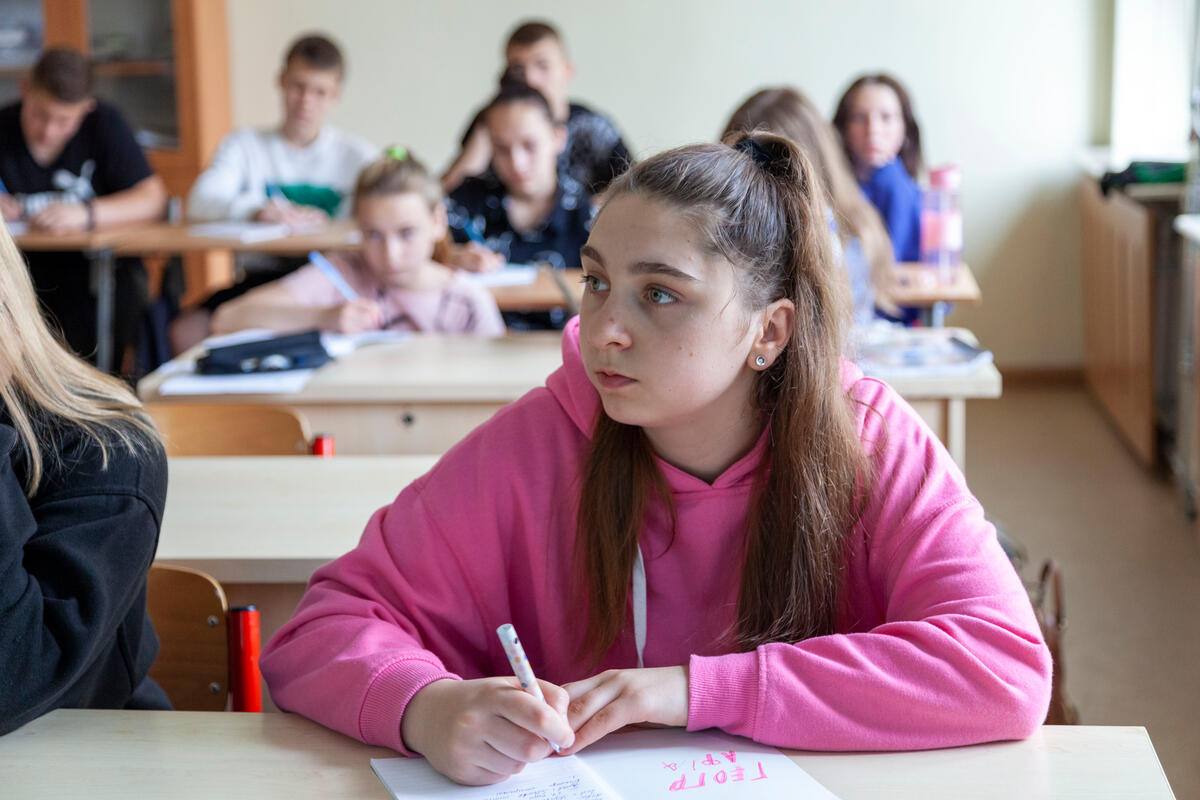Rebuilding schools in South Sudan
Rebuilding schools in South Sudan

LUTHAYA, South Sudan, May 23 (UNHCR) - As a Roman Catholic priest, Father Simon Khamis took a vow of poverty when he was ordained more than 20 years ago.
"It's just as well," he says with an infectious laugh. As head of community outreach for two desperately poor Sudanese schools, he says, these days "I'm not asking for any payment. My vows of poverty are being fulfilled."
Father Simon, a former refugee himself, is just one of many South Sudanese making sacrifices to educate the next generation. There are surely few people who prize education as highly as the South Sudanese; refugees outside the country often list it even above peace and security as their main requirements for ending their exile and coming home.
As UNHCR and other UN agencies lay the groundwork for the return of some 4.5 million people (both refugees and those displaced within Sudan) to their homes, putting in place good education is a top priority. At Luthaya, just outside Yei in Equatoria province, UNHCR is paying to reconstruct St. Joseph's Luthaya Primary and Secondary Schools, where Father Simon works.

But "reconstruct" may not be precisely the right word. The brick buildings housing the classrooms are being built from the ground up. Meanwhile the children, thirsty for knowledge, attend classes under trees, sitting on piles of bricks instead of desks and chairs.
In one open-air "classroom", young children sing - in loud, cheerful English - "the wheels on the bus go round, round, round, all the way to Juba", referring to a nearby town that is still inaccessible because of landmines.
Clearing landmines to make way for the trucks that will take refugees home is another top priority for the United Nations. The UN refugee agency expects the first organized convoys will start moving this year after the rainy season, perhaps as early as October. Some refugees are coming back on their own, though, without waiting for UNHCR's help.
Alphonse Moi, headmaster of St. Joseph's, came back from a refugee settlement in northern Uganda.
"We came here to help the children," he says. He recognizes that the free education refugee children are getting in UNHCR camps in Uganda, Kenya and other countries may keep refugee families from rushing back. South Sudanese teachers now working in refugee camps should be given financial incentives to come back home, he suggests. That would encourage others to follow.
But money is in short supply all around Yei. Schoolchildren come to class without uniforms, without shoes, without having eaten breakfast. And the school is too poor to supply lunch, or even drinking water.
"They want to learn, but the problem is hunger," Moi explains, standing under a shady tree. "They can't learn when they are hungry."
Moi's own plaid cotton shirt, clean and neatly pressed but with a threadbare collar, testifies to his own sacrifices. He says parents of his pupils give him money and food when they can, and his wife helps support their five children by farming.
"The South Sudanese really prize education," says Timothy Brown, a UNHCR education expert in Yei, with decades of experience in the field. "Their thought is always to go further, to get more education. As soon as they finish one level, they're thinking of what the next degree is."
UNHCR's approach to reconstructing South Sudan is to fund projects that benefit entire communities, not just returning refugees. Around Yei and Kajo Keji, UNHCR, with its partners, is rehabilitating 26 schools and several health centres as well as drilling vital boreholes.
At a vocational training school in Yei, where UNHCR is building a student dormitory, students learn carpentry, car mechanics and bricklaying.
Veronica, a 23-year-old mother of two, is proud to be one of the very rare women bricklayers in this part of the world. "It's an unusual work for a woman," she says with a shrug, "but my husband doesn't complain" - likely because it offers a way to make a living in a town where jobs are still scarce.
Across the border in a refugee settlement near Arua, Uganda, Sudanese refugee women and girls say free education there keeps them from rushing back to their homeland, despite the peace accord signed in January this year.
"When I was brought from Sudan, I didn't know what education was or what school was," says Mary Night, who fled Sudan with her parents 10 years ago, when she was eight. "In fact, it was my good luck that I ended up being a refugee. If I had been in Sudan all this time, I would not have been in school."

A top student who speaks fluent English, she has had unheard-of opportunities in the camp and has soaked up all the teaching about women's equality. Now 18 and well past the age when Sudanese girls usually get married, she says she wants to defer marriage for a few more years.
Her priority now, she says, is to get a university education. "I would like to study economics or accounting," she says firmly, "so I can go back and build my country." But not just yet: "My worry is that I am not sure whether there is proper education in Sudan."
By Kitty McKinsey in South Sudan and northern Uganda









